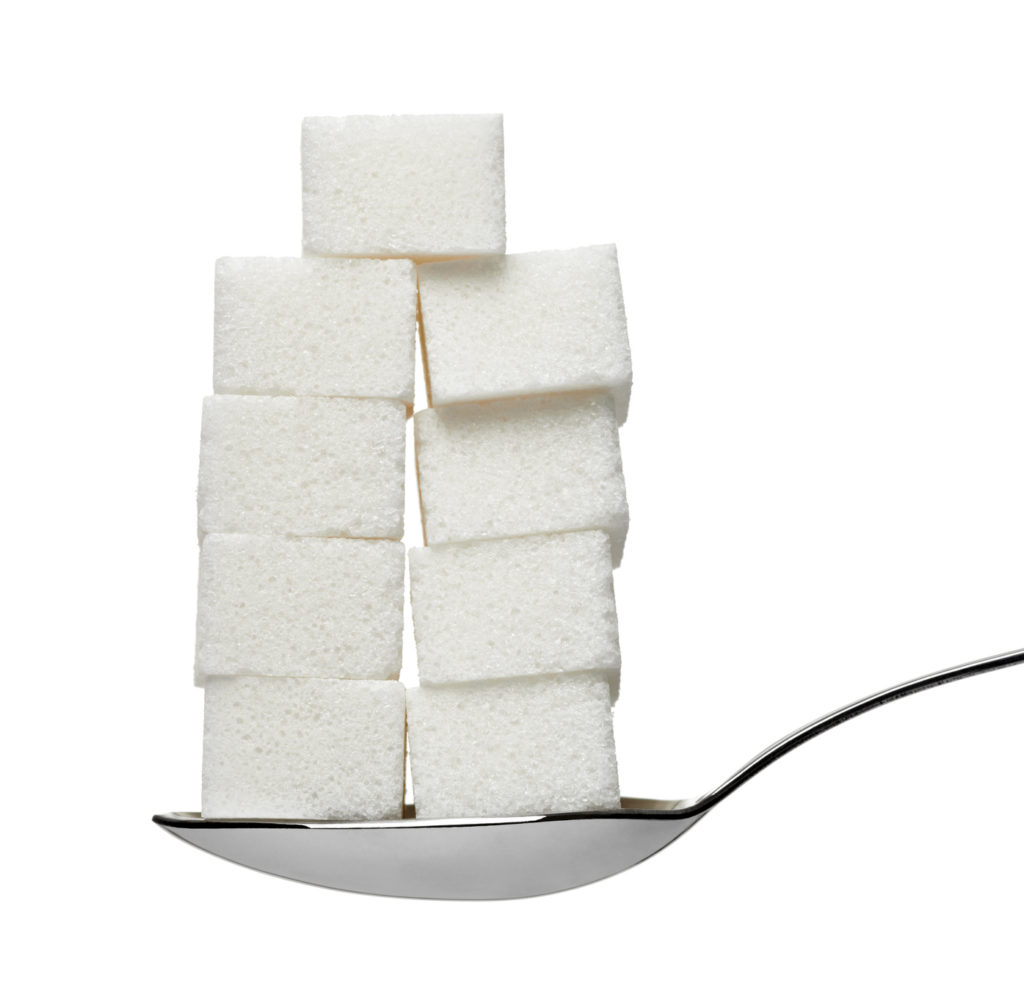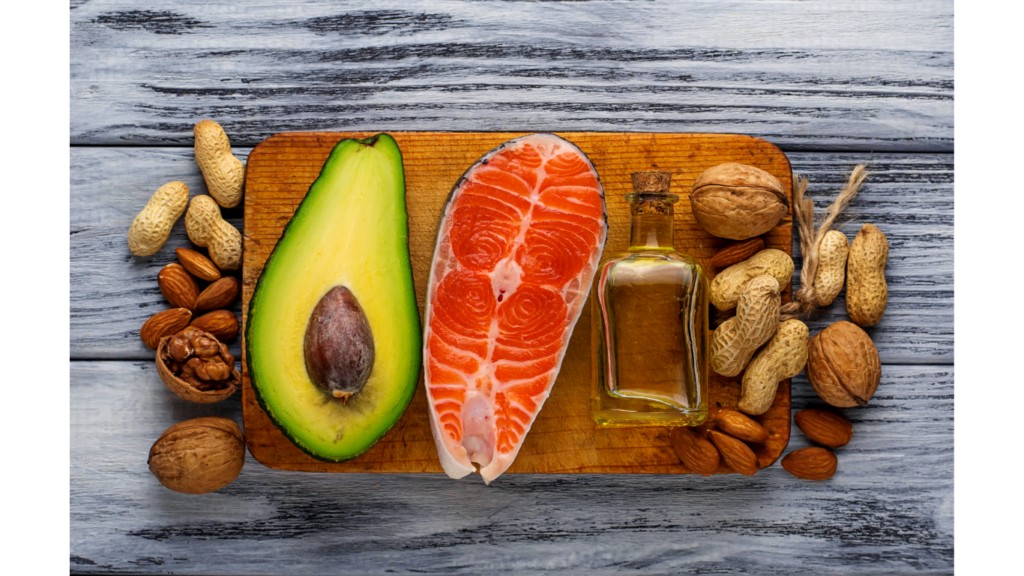For decades, cholesterol has been portrayed as the bad guy behind heart disease and poor health. However, it has also been known for many years that cholesterol and especially consuming cholesterol foods are not the true culprit.
As a dietitian committed to promoting natural foods and supplements for optimal health, it is essential to explore the link between blood cholesterol, high-sugar diets, and processed seed oils among other contributing factors. This blog hopes to provide some debunking around the cholesterol myth and highlight the true contributors to heart disease and overall well-being.

Understanding Cholesterol
Cholesterol is a crucial substance that plays a vital role in various bodily functions. While it often gets a bad reputation, it is important to understand that cholesterol is essential for our overall health. Our liver is primarily responsible for producing the cholesterol needed by our body, while a smaller amount is obtained through the foods we eat.
One genetic condition, Familial Hypercholesterolaemia (FH), is where there is a fault in one of the genes involved in removing cholesterol from the blood via your liver. It happens when you inherit a ‘faulty’ gene (also known as an ‘alteration’ or ‘mutation’) from one of your parents. Many people go instantly to a no fat diet and this is not the answer. Using a healthy diet with select medication is required still ensuring healthy fats are not completely avoided.
The Flawed Cholesterol-Heart Disease Connection
Numerous studies have questioned the long-held belief that consuming foods high in cholesterol directly leads to elevated blood cholesterol levels and an increased risk of heart disease. Research is shedding more and more light on this topic, suggesting that the impact of dietary cholesterol on blood cholesterol levels may be minimal when compared to other factors such as overall diet quality and lifestyle choices. This has implications for individuals looking to make informed decisions about their dietary choices and overall cardiovascular health and I am so delighted to see this out-dated belief being challenged.
Cholesterol – Focus on the Real Culprits
Heart disease and poor health are complex issues cannot be solely due to one factor, such as cholesterol. Rather than singling out cholesterol, it is important to address the role of other factors that are involved. These include the well-known like lack of exercise, unbalanced diet, obesity, stress, lack of sleep, alcohol, smoking, and others not so obvious like trans fats, medications, diabetes, hormone dyregulation, an underactive thyroid, poor kidney function.
The two primary factors I wish to expand on in this blog are high-sugar diets and processed seed oils. Both of which are unnecessary but deeply ingrained in our eating habits worldwide and are related to heart disease and poor heart health when consumed in the modern diet.

High-Sugar Diets and Heart Disease
A high intake of added sugars, particularly refined sugars found in ultra-processed and processed foods and sugary beverages, leads to chronic inflammation and oxidative stress in the body.
Dietary sugars mainly refer to fructose and glucose which are naturally present in fruits and some vegetables. The molecular formula you may remember from school biology is C6H12O6 and they are isomers of each other.
Fructose and glucose are both considered to be sweet sugars, fructose is however the sweeter of the two but here is the important part – fructose is absorbed differently in the body. Unlike glucose, which is used by cells as an energy source, fructose is metabolized by the liver, where it promotes the synthesis of fat.
High Fructose Corn Syrup (HFCS) is a common sweetener and preservative made from the simple sugars fructose and glucose. HCFS-55 and HCFS-42, are the most commonly utilized form that are used in beverages and baked goods. As you can gusess the numbers indicate the amounts so HCFS -55 contains 55% fructose and HCFS-42 and 42% fructose, respectively, with the remainder of the of the syrup being glucose.
Since the 1970s, the amount of HFCS has increased in foods firstly in the USA but are now common within the “Western diet” consumed worldwide. The consumption of these types of processed sugars, particularly in sugary soft beverages (SSB), became a major contributor to sugar intake, and the correlation between sugar-sweetened beverages (SSB) and cardiometabolic diseases highlights the potential impact of fructose and glucose on our health.
Cholesterol intake or Triglyceride Imbalances?
So why worry? Well increased sugar consumption stimulates the liver to convert excess sugar into triglycerides, a type of fat, and it is elevated triglyceride levels in the blood that are strongly associated with an increased risk of heart disease.
As highlighted the consumption of processed sugar has reached worrying levels in our modern diet and I see this in my everyday practice. Patients are providing food diaries doing their best to eat what they consider healthy for their heart; all low fat, and in fact they are more inflamed than ever with not paying attention to the processed sugars they are consuming.
While natural sugar can provide a quick burst of energy and is fine as part of a balanced intake, excessive intake can have detrimental effects on our health.
As mentioned elevated levels of triglycerides in the blood have been identified as a significant risk factor for heart disease. When triglyceride levels rise above normal limits, it can lead to plaque buildup in the arteries, increasing the chances of heart disease and related complications.
I explain and teach this to my patients. It is crucial for individuals to monitor and decrease their sugar intake, they are also required to check blood levels and maintain healthy triglyceride levels, this will reduce their risk of heart disease and other inflammatory conditions.

Processed Seed Oils and Heart Disease
So what about seed oils? The imbalance of omega-6 and omega-3 fatty acids is a common dietary concern. Omega-6 and omega-3 fatty acids are both essential fats that our bodies need for various functions, such as proper brain function, healthy skin, and the regulation of inflammation.
However, in today’s Western diet, the ratio of omega-6 to omega-3 fatty acids is often imbalanced. This is mainly due to the high consumption of processed and fried foods, along with processed heavily refined seed oils, such as corn, soybean, and sunflower oils. These have all become staples in our modern diets without people realising. These oils can have a negative impact on our health as they are high in omega-6 fatty acids.
Does Cholesterol Cause Oxidative Damage?
Seed oils that have been processed are known to contain high levels of polyunsaturated fats, which makes them susceptible to oxidation. Heating or processing these oils can lead to the formation of harmful compounds that cause damage to cells and tissues through oxidative stress. This in turn raises the risk of developing heart disease alongside chronic inflammatory conditions like arthritis, and certain types of cancer.
So while both types of fatty acids are important, excessive consumption of omega-6 fatty acids can promote inflammation in the body.
To restore balance, it is recommended to increase the intake of omega-3 fatty acids while reducing the consumption of foods high in omega-6 fatty acids. This can be achieved by incorporating more fatty fish like salmon and mackerel into your diet, as well as adding sources of plant-based omega-3s like chia seeds and hemp seeds.
Striving for a balanced intake of omega-6 and omega-3 fatty acids can help promote overall well-being.
What can you do to ensure a heart healthy diet
Thankfully it is not difficult to make the correct choanges. A diet rich in whole, unprocessed foods such as fruits, vegetables, whole grains, legumes, and lean protein sources is where you want to be focusing. These natural foods provide essential nutrients, fibre and antioxidants, supporting heart health and overall well-being. These all assist reducing inflammation.
Get the message that all fats are bad out of your head. Incorporating healthy fats into your diet, such as avocados, nuts, natural seeds, and fatty fish like salmon are good. These fats contain omega-3 fatty acids that help reduce inflammation and promote heart health.
If not sure what is best for you consulting with someone like myself a registered dietitian can assist and navigate you through this confusion!
Cholesterol Conclusion
Cholesterol, often portrayed as the primary cause of heart disease and poor health, is not the real culprit. High-sugar diets and processed seed oils play a more significant role in contributing to these health issues. By promoting natural foods and supplements, we can support optimal heart health and overall well-being.

So, what to do next or for anything else..
If you are needing help with your diet and health or anything else… we can assist you with this. Maybe you wish to change your eating habits, stop tracking or need help optimising the foods you eat to assist your heart health or your sugar addiction and are not sure what programme to select, please do contact us. We would love to help you or your family and friends with any nutrition-related queries big or small.
If you want to book your programme TODAY we would love to help you.
You can book a 121 Dietitian Programme today by clicking on the link below
If you have enjoyed this blog we would love you to share this with your family and friends on your social media channels. Do visit our YouTube Channel for more on keeping your health optimal.
If you are interested in how I overcame my Thyroid Autoimmune Condition do check out the About section below
Before you go please check out our 121 Dietitian Shop created specifically for optimising your health.
Gillian x
Links included in this description might be Amazon affiliate links. If you purchase a product or service with the links that I provide I may receive a small commission.